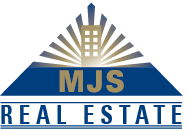Introduction
In my two previous blogs, I have defined and explained, with the help of numerical examples, the “gross-up” clauses found in certain commercial leases (office, industrial and retail premises). We have also seen some of the most common errors in the interpretation and application of these clauses, as well as some of the major slippages and fraudulent applications that may result.
Now let’s see how tenants and their legal representatives can minimize their financial exposure related to gross-up clauses, both before and after the lease is signed.
Keep quiet!
Since the grossed-up amount is only an accounting artifact, it does not generally comply with the definition of an actual operating cost under the commonly used definitions of commercial leases. Consequently, the gross-up is normally not eligible as a cost the lessor can recover as additional rent. If no mention is made in the lease of such a gross-up process, the lessor will not have a legitimate right to inflate the operating costs of the building. In other words, the best way to exclude the possibility for a lessor to gross-up his operating costs is by ensuring that the lease is silent on the topic.
Lookout for the clues
The majority of landlords’ standard leases contain provisions allowing them to charge grossed-up costs to the tenants. Most of the time, these provisions are easily spotted in the lease. In other cases, the landlords make sure the gross up process is so subtly mentioned in the lease that it can easily go under the radar of most senior lease administration experts. Here is an example of a subtlety that can be used:
“Operating expenses include all costs attributable to the operation, administration, maintenance, repair, supervision and management of the fully occupied building, including …”
(I underline)
By these two simple words subtly inserted in a major definition of the lease, the lessor decided he had the right to gross-up several of the operating costs of his building and thus excessively charge the additional rent to tenants. The process was not clearly defined, so he took the opportunity to do the calculations in a very imaginative way. Of course this interpretation is very questionable and far-fetched, but it remains an actual case that I have experienced more than once.
The lesson to be learned from this example, is when reviewing a lease before it is signed, look out for any clues that could indicate that the lessor might be able to gross-up the operating costs and, in turn, the additional rent billable to the tenant. In doing so, you will be in a position to negotiate amendments to the wording chosen by the lessor, to better control the gross-up process and limit the financial risk of the tenant.
If you have no choice
If a lessor insists on including a gross-up clause in the lease, it is important to properly circumscribe the process and to limit its application as much as possible. Like any other aspect of a commercial lease, the gross-up clause must be clearly defined and the calculation methodology must be applicable, quantifiable and verifiable. In addition, this methodology must be fair and above all, not detrimental to the tenant.
To achieve these objectives, the gross-up clause should take the following elements into account:
- The gross-up may apply only to the portion of the cost that varies according to the occupancy rate only;
- The variable portion of the cost in question must be attributable to the rental areas of the building and not to the common areas;
- Ideally, cost categories meeting these conditions should be specifically identified (eg, housekeeping of leased premises, electricity consumed in leased premises, etc.);
- Specify from which vacancy rate the gross-up clause becomes applicable;
- Specify which gross-up rate is applicable;
- Use the historic vacancy rate of the building as the rate that triggers the gross-up and dictates the applicable gross-up rate;
- Specify that it is the costs that must be increased and not that the lessor can divide the actual costs by the occupied area of the building.
- Specify that at any time, the result of the gross-up calculation cannot exceed the costs that the tenant would have paid if the building had been occupied at x% (historical occupancy rate).
The audit right to keep your landlord honest
The one and only way to ensure that the lessor will apply, during the term of the lease, the gross-up clause as negotiated and in accordance with the intent of the parties, will be to conduct lease audits at regular intervals.
Consequently, the tenant and their legal counsel will have to insist that a section of the lease guarantees the right for the tenant to audit the rent invoiced by the landlord. Subsequently, the tenant will have to exercise his right according to the terms and conditions set out in the lease and taking into account the applicable legal limitation period.
We can help you
Before signing a costly contract that could bind your company for a significant period of time, consider having MJS review your commercial lease. Not only is this a great governance practice, but such a review could also save you hundreds of thousands of dollars.
Only an expert with lease audit experience can predict how a landlord will interpret the wording of a specific lease clause and bill the additional rent charges. A lease audit expert can also suggest amendments to the wording of certain lease clauses in order to reduce a tenant’s financial exposure and make it much more difficult for a landlord to interpret lease clauses in a manner that will prove detrimental to the tenant.



